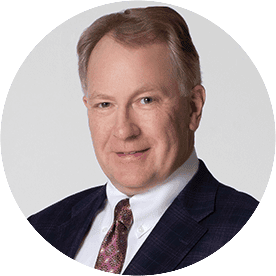Research can protect you from the next scammer
It has been more than two decades since David Mobley snookered Naples residents out of more than $100 million and now it appears local investors have let their guard down again with recent Naples Daily News articles reporting a $35 million Ponzi scheme.

The name “Ponzi” comes from Charles Ponzi, an Italian swindler and con artist who in the 1920’s promised 50 percent returns within 45 days while banks were paying just 5 percent. His alleged business was international stamp trading where he claimed that he could buy stamps in a cheaper country and then sell in a more expensive country, thus making a risk-free profit. In reality, it was just a good story covering a big fraud.
Ponzi schemes over time have similar characteristics. First, they offer returns that are unrealistically attractive. Second, the perpetrator has “new ways” of making money that usually doesn’t hold up to scrutiny. Third, the client provides complete access to their money by usually investing in a fund to which the perpetrator has complete access.
Fraudsters and Ponzi schemers have been around as long as money has been in circulation. How can you as an investor sharpen your eyes and protect your money?
First, ask yourself are the returns significantly better and are they verifiable? Historically, the benchmark S&P 500 has averaged roughly 10 percent returns per year. Wall Street convicted Ponzi schemer Bernie Madoff promised 11 percent returns with very little volatility, which was unrealistic given the normal ups and downs of the stock market.
Second, is their “story” reasonable? Mobley claimed to trade options which usually require significant mathematics and computer skills, but he lacked a college degree. What is the background of the individual and do they have the necessary experience?
Third, and possibly most importantly, does the “investment manager” have access to the investor’s funds? Most investment advisors use a third-party custodian such as Fidelity, Charles Schwab or a trust bank to ensure transactions of the client are appropriate. Bernie Madoff was his own custodian, so it was easy for him to steal from his clients.
For investors who invest in a private fund, ask for audited financial statements of the fund with an unqualified opinion from a reputable Certified Public Accountant (CPA) firm.
In addition to asking these basic questions, the Securities & Exchange Commission (SEC) encourages investors to check the backgrounds of people selling investments by using the SEC’s website Investor.gov to identify quickly whether they are registered professionals and confirm their identity.
Also, check to see if the investment professional has achieved the Chartered Financial Analyst (CFA) certification which requires a three-part examination process and members must attest to upholding a Code of Ethics.
While Ponzi fraudsters are innovative in their schemes, it appears that the basic characteristics of the crime remain similar over time. With a little research and due diligence, you can protect you and your family from the next Charles Ponzi.
Andrew Hill, CFA, is president and co-founder of Andrew Hill Investment Advisors Inc., a Registered Investment Advisory firm based in Naples.
This article originally appeared on Fort Myers News-Press: Research can protect you from the next scammer
